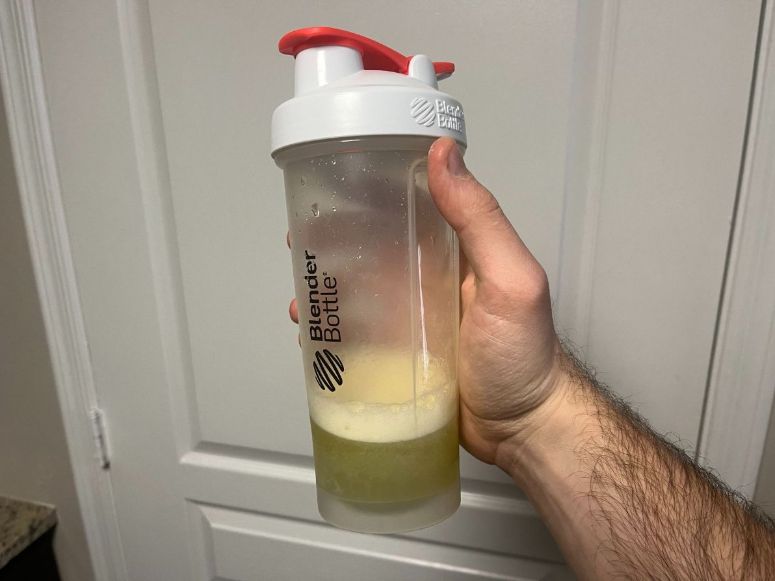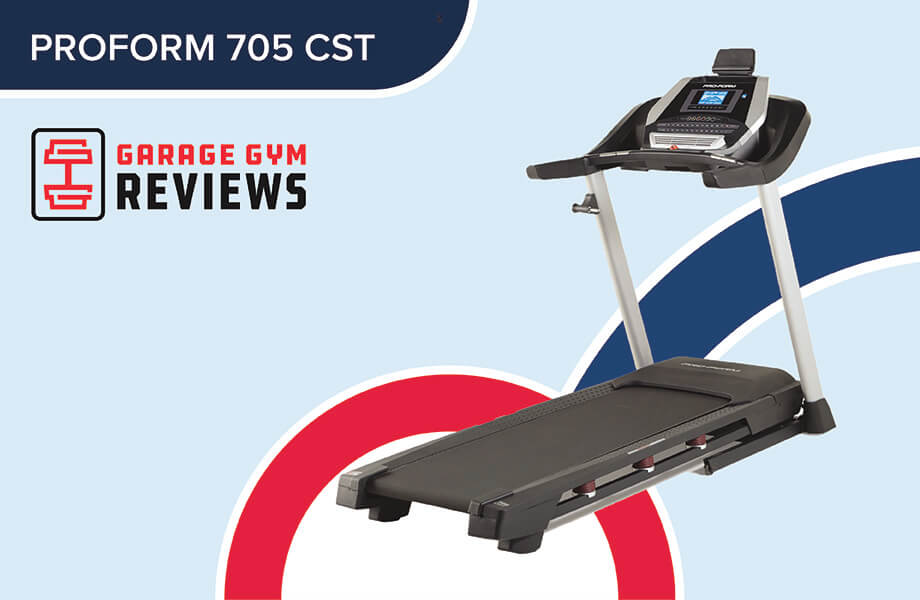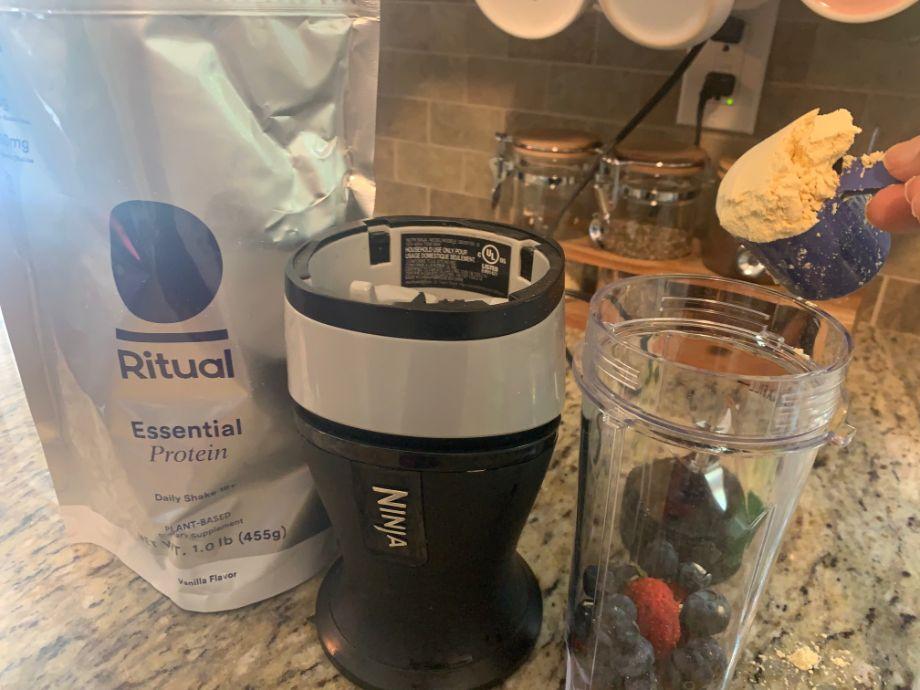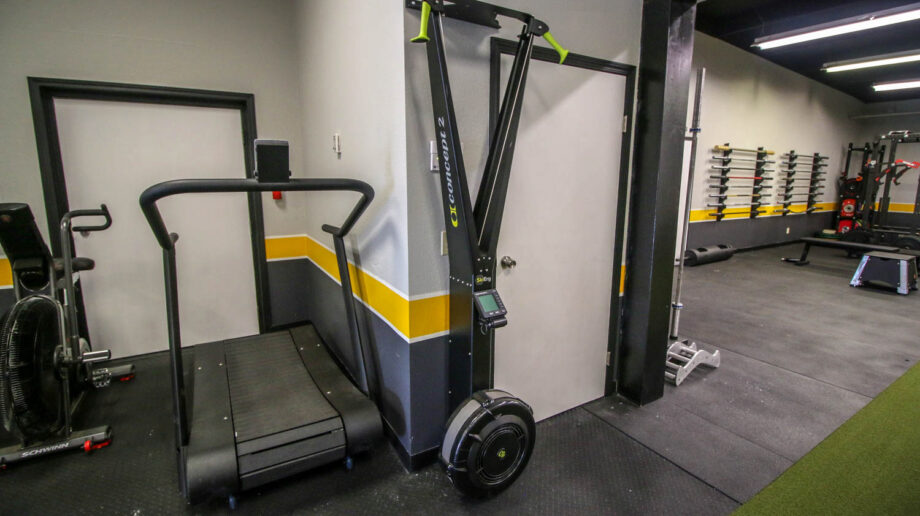Pre-workouts line the shelves everywhere; they’re one of the most common sports nutrition supplements. But things aren’t always what they seem, and many commercial pre-workout supplements have non-effective dosages. In other words, the supplement isn’t even doing what it claims to do.
And the best pre-workouts can sometimes cost $50 or more for 30 servings—that’s a lot of money to spend on something that may or may not be working. One option is to skip the pre-workout altogether. But if you want that boost to get you through your workout (and help you recover faster), you can also make your own pre-workout supplement instead. It may sound like a lot of work, but whipping up a homemade pre-workout is actually really straightforward.
Medical disclaimer: This article is intended for educational and informational purposes only. It is not intended as a substitute for medical advice. For health advice, contact a licensed healthcare provider.
Why You Should Try Homemade Pre-Workout
There’s a lot of hype around pre-workout supplements, but many commercially available versions are sub-par.
Research shows1 that while many pre-workout supplements contain beneficial ingredients, the amount in them is below the recommended efficacious dose. In other words, there’s not enough of some of these ingredients to have a beneficial impact on your exercise performance.
In some cases, supplement companies won’t even disclose the exact amount of the ingredients in their pre-workouts, stating that it’s a proprietary blend. In these cases, you don’t even really know what you’re getting.
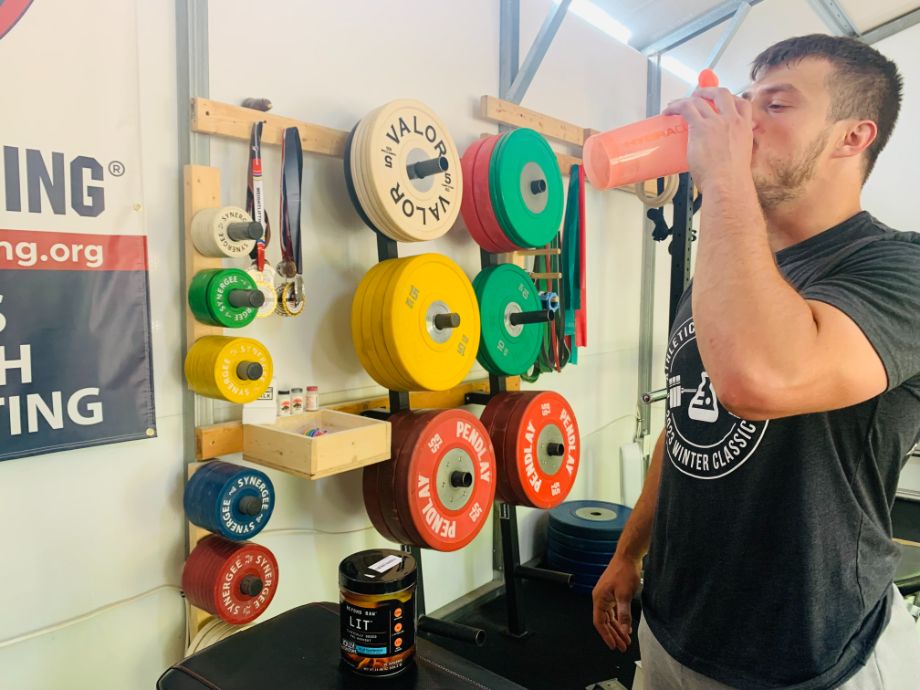
Commercially prepared pre-workouts can be expensive, too. Our favorite one breaks down to just under $1.70 per serving. You can make your own pre-workout supplement for much less; some homemade pre-workout supplements come out to just a few cents per serving.
Aside from the cost-effectiveness, making your own pre-workout drink also gives you full control over the quantity of each ingredient. You can make sure you’re using effective doses, and adding the ingredients you want and skipping the ones you don’t.
RELATED: Best Pre-Workout Ingredients
You can also control the quality of your ingredients more. Instead of putting up with the fillers and added ingredients in many prepared pre-workouts, you can choose high-quality ingredients without unnecessary additives.
Is Homemade Pre-Workout Safe?
Yes, homemade pre-workout supplements are safe, as long as you’re sticking to the recommended dosages and choosing ingredients that are formulated by reputable companies. Because homemade pre-workouts use similar ingredients, they do have the same risk of pre-workout side effects as those made by a supplement company though.
Some of the most common side effects2 of pre-workout ingredients are jitteriness/anxiousness, digestive symptoms (nausea, bloating, cramps, and diarrhea), increases in blood pressure, and/or negative effects on glucose and blood lipids.
Common Ingredients for Homemade Pre-Workout
While we might not know the exact recipes of the commercial pre-workouts you can get at your local nutrition shop, we do know some of the go-to ingredients in them. Before jumping into our own homemade pre-workout recipes, let’s quickly break down some of the most common pre-workout ingredients and why they’re added.
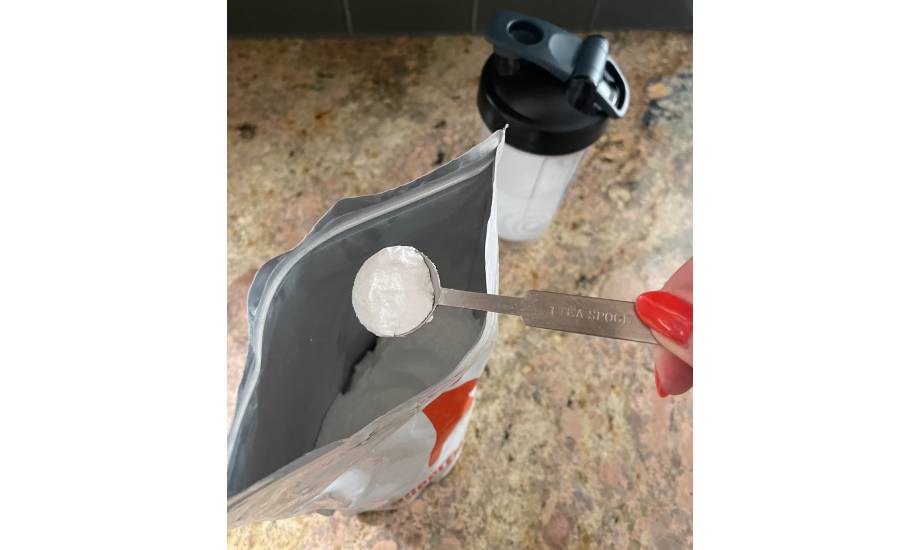
Caffeine
While you can find some stim-free pre-workouts, most contain caffeine or some other type of stimulants. Caffeine not only increases energy and endurance, it also improves focus, concentration, and reaction time. Caffeine can also help reduce the perception of fatigue3, so you’re able to stick with your workout longer.
Creatine
Creatine (or creatine monohydrate) is often brushed off as a supplement for bodybuilding only, but it’s not just for those trying to build muscle.
Yes, creatine can help improve strength and performance4 during resistance training exercises, like leg presses and bench presses. But it can also help with explosive movements5 like jumping.
RELATED: Best Creatine
Branched-Chain Amino Acids (BCAAs)
The branched-chain amino acids include leucine, valine and isoleucine. They’re available on their own, but are often included in pre-workout supplements. Some benefits of BCAAs are:
- Performance enhancement and reduced fatigue6
- Reduced soreness and improved recovery post-workout7
- Muscle growth (to some degree)
While the best BCAAs can stimulate muscle protein synthesis, they lack all the essential amino acids you need to drive real muscle gains, according to nutritionist, registered dietitian, and supplements expert Bob Iafelice. (A complete high-quality whey protein powder is better for this job).
Other Amino Acids
Other amino acids, like L-arginine, taurine, tyrosine, and L-citrulline, help with protein synthesis, which is important for muscle growth.
Citrulline malate, which is a combo of L-citrulline and malic acid, enhances anaerobic exercise performance8 and helps alleviate muscle soreness. Both types of citrulline also convert to nitric oxide (more on nitric oxide agents below), which helps improve blood flow and deliver oxygen to the muscles.
Beta-alanine, another amino acid, boosts the production of carnosine, which reduces lactic acid accumulation and helps improve exercise performance.
Nitric Oxide Agents
Nitric oxide is a vasodilator, which means it widens blood vessels and increases blood flow9 and circulation (without negatively affecting your blood pressure). Increased blood flow translates to increased strength and improved recovery.
Because nitric oxide itself is a gas, many supplements use compounds that convert to nitric oxide in your body in their pre-workout supplements.
How To Make A Homemade Pre-Workout
Making a homemade pre-workout is really straightforward. All you have to do is buy the aforementioned ingredients in bulk and dose them out according to your goals. This can be more of an investment up front, since you have to buy multiple supplements, but ultimately the cost per serving will be much lower.
Here are some DIY pre-workout recipes you can try:
Homemade Pre-Workout for Endurance Training
One serving size:
- 1-2 capsules caffeine
- 8 g citrulline malate
- 1 capsule beet root extract (a nitric oxide agent)
- 5 g creatine monohydrate
- 2 g of beta-alanine
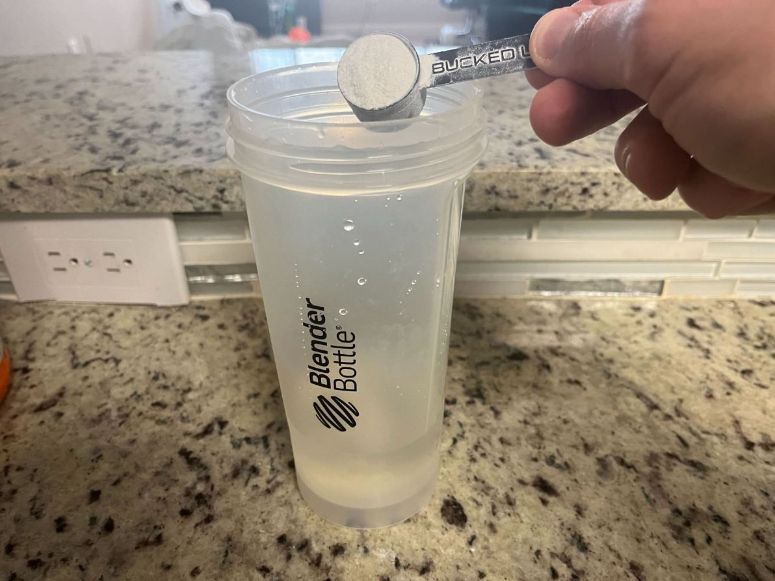
Homemade Pre-Workout for Strength Training and Muscle-Building
One serving size:
- 1 capsule caffeine
- 5 g creatine monohydrate
- 2 g tyrosine
- 8 g citrulline malate
To make the pre-workout, just throw these ingredients into a shaker bottle with some water or coconut water (to add some electrolytes for extra hydration before your workout), mix, then drink it up.
You can also mix the ingredients with brewed green tea instead of water for some additional benefits. Green tea offers some more caffeine, but it also contains L-theanine, which enhances the cognitive benefits of caffeine while helping control the jitters.
You can add some flavoring if you want, but it’s not necessary if you prefer to keep the sugar and carbohydrates lower. You can also use a little bit of juice.
Homemade Pre-Workout Pros and Cons
Pros
- Full control over ingredients and doses
- Can dose them to your weight and goals
- Cost-effective
- Can make larger batches, so you always have some on hand
Cons
- May require a bigger upfront investment
- Takes more time and effort (in the beginning, at least)
- May be overwhelming for beginners
Homemade Pre-Workout: Final Thoughts
Not only are homemade pre-workouts more cost-effective than pre-packaged versions, you can control exactly how much of each specific ingredient you’re using. They’re also easy to throw together. That being said, there’s nothing wrong with just grabbing a great pre-workout from the shelf if you don’t have the time to DIY. Just make sure to purchase a reputable brand.
Homemade Pre-Workout: Q&A
What can I use instead of pre-workout?
You don’t need a dedicated pre-workout supplement to boost performance and enhance recovery. You can get similar results from natural pre-workout ingredients like coffee, beetroot juice, and green tea extract.
What is the main ingredient in pre-workout supplements?
Caffeine is the main ingredient in most pre-workout supplements, but this can depend on the type of supplement you choose. Other common ingredients include creatine, citrulline, betaine, and branched-chain amino acids.
When should I take pre-workout?
Pre-workouts should be taken about 20 to 30 minutes before you start your workout. If you’re using caffeine, you want to be mindful of your timing here, though; if you take a stimulant-based pre-workout within six hours of bedtime, it can disrupt your sleep. You can always omit the caffeine or use a stim-free pre-workout instead.
These statements have not been evaluated by the Food and Drug Administration. This product is not intended to diagnose, treat, cure, or prevent any diseases.
References
- Jagim AR, Harty PS, Camic CL. Common Ingredient Profiles of Multi-Ingredient Pre-Workout Supplements. Nutrients. 2019;11(2):254. Published 2019 Jan 24. doi:10.3390/nu11020254
- Eudy AE, Gordon LL, Hockaday BC, et al. Efficacy and safety of ingredients found in preworkout supplements. Am J Health Syst Pharm. 2013;70(7):577-588. doi:10.2146/ajhp120118
- Desbrow B, Hall S, O’Connor H, Slater G, Barnes K, Grant G. Caffeine content of pre-workout supplements commonly used by Australian consumers. Drug Test Anal. 2019;11(3):523-529. doi:10.1002/dta.2501
- Arciero PJ, Hannibal NS 3rd, Nindl BC, Gentile CL, Hamed J, Vukovich MD. Comparison of creatine ingestion and resistance training on energy expenditure and limb blood flow. Metabolism. 2001;50(12):1429-1434. doi:10.1053/meta.2001.28159
- Lamontagne-Lacasse, M., Nadon, R., & Goulet, E. D. (2011). Effect of Creatine Supplementation Jumping Performance in Elite Volleyball Players, International Journal of Sports Physiology and Performance, 6(4), 525-533. Retrieved May 18, 2023, from https://doi.org/10.1123/ijspp.6.4.525
- Kephart WC, Wachs TD, Thompson RM, et al. Ten weeks of branched-chain amino acid supplementation improves select performance and immunological variables in trained cyclists [published correction appears in Amino Acids. 2018 Oct;50(10):1495. Mac Thompson R [corrected to Thompson RM]]. Amino Acids. 2016;48(3):779-789. doi:10.1007/s00726-015-2125-8
- Gee TI, Deniel S. Branched-chain aminoacid supplementation attenuates a decrease in power-producing ability following acute strength training. J Sports Med Phys Fitness. 2016;56(12):1511-1517.
- Pérez-Guisado J, Jakeman PM. Citrulline malate enhances athletic anaerobic performance and relieves muscle soreness. J Strength Cond Res. 2010;24(5):1215-1222. doi:10.1519/JSC.0b013e3181cb28e0
- Bescós R, Sureda A, Tur JA, Pons A. The effect of nitric-oxide-related supplements on human performance. Sports Med. 2012;42(2):99-117. doi:10.2165/11596860-000000000-00000


